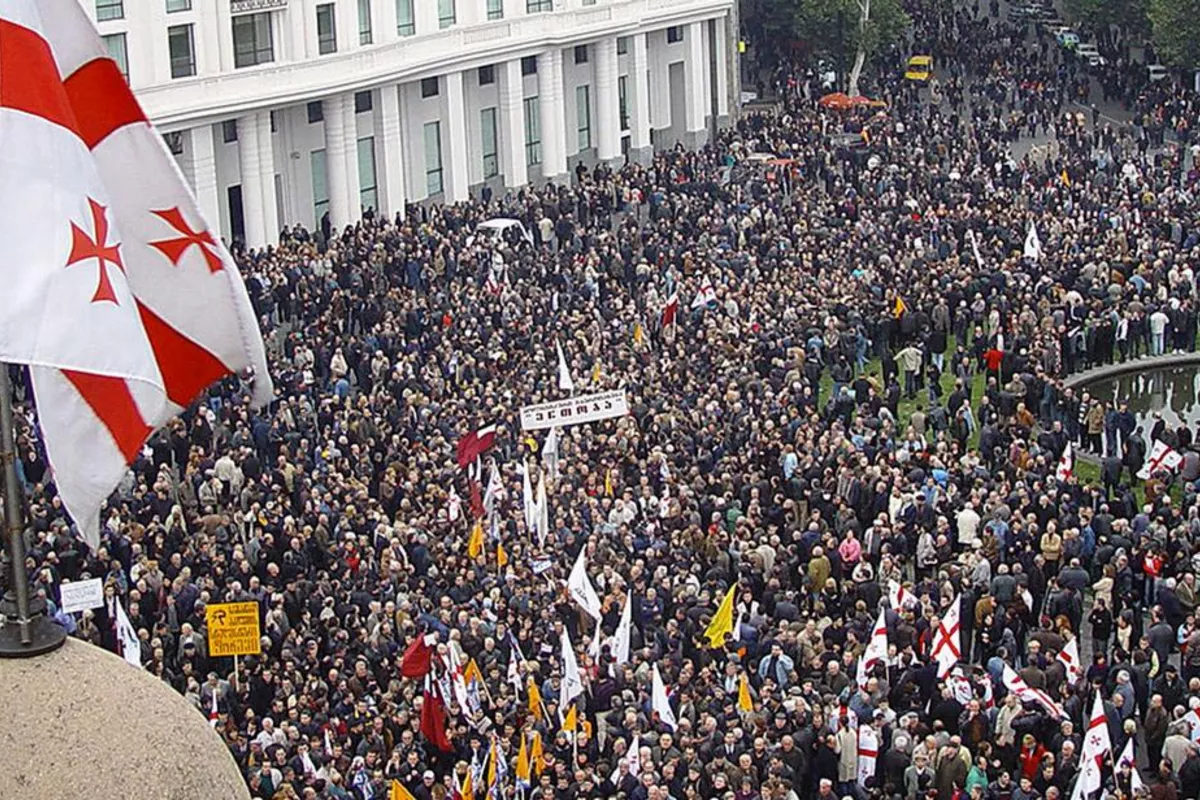
photo: DW
On October 4, Georgia reached a critical turning point in its modern political history. What many analysts describe as a moment of “national purification” marked the end of an era shaped by the legacy of authoritarianism. The radical opposition’s attempt to drag the country back into the turmoil of street revolutions failed, demonstrating the growing maturity of both the state and civil society. To discuss the significance of these developments, the collapse of the United National Movement (UNM), and Georgia’s new political trajectory, The Caspian Post spoke with Georgian political analyst Dmitry Lortkipanidze.
Photo: Georgian political analyst Dmitry Lortkipanidze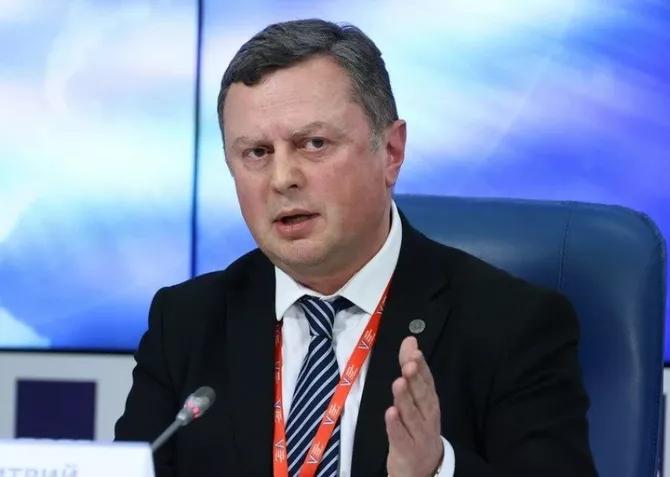
- Mr. Lortkipanidze, can October 4 be considered a turning point in Georgia’s modern history?
- Absolutely. October 4 will go down in Georgia’s history as the day when one of the most notorious and entrenched political forces - the United National Movement (UNM) - was finally dismantled. Once brought to power under the slogans of reform and democratization, this structure gradually turned into an instrument of repression against its own people. During its years in power, Georgia lived through one of the darkest chapters of its independence marked by systematic human rights abuses, torture in prisons, murders, corporate raids, persecution of dissidents, and the destruction of the judicial system.
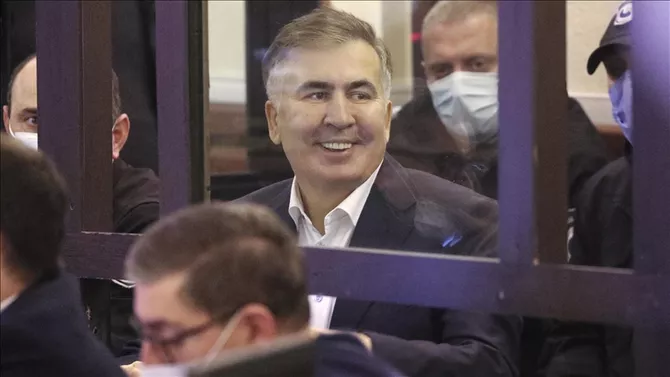
Photo: Mikheil Saakashvili
The party, now led by the imprisoned third president Mikheil Saakashvili, became a symbol of moral and social decay. Under the guise of “European integration,” it pursued a policy of internal terror, turning its citizens into victims of humiliation and abuse. Thousands of young Georgians were forced to leave the country - not because of war or natural disasters, but because of political arbitrariness and hopelessness under that regime.
October 4 put an end to an entire era - one of fear, lies, and hypocrisy. It was not merely a political event but an act of historical cleansing, a symbol of Georgia’s moral liberation. Today, Georgia is finally taking a step toward genuine democracy, where state power will no longer serve as an instrument of reprisal but as a mechanism to serve the citizen.
- How do you assess the United National Movement’s decision to boycott the October 4 municipal elections while simultaneously announcing a so-called “peaceful overthrow of power”? Can this be seen as a deliberate attempt to destabilize the domestic situation in Georgia?
- It comes as no surprise that the United National Movement, against which the ruling Georgian Dream party initiated a parliamentary investigation through a special commission, chose the path of self-escalation. The findings of that commission - soon to be presented publicly - will shed light on some of the darkest episodes of Georgia’s recent history, including corruption, abuse of power, and violent crimes committed during Saakashvili’s rule.
Realizing that this moment was approaching, the UNM tried to seize the narrative - not through ideas or policy, but through a media-driven, emotional performance. The decision to boycott the municipal elections was nothing more than a smokescreen for another political adventure. The party declared a “peaceful overthrow of power,” effectively challenging the constitutional order.
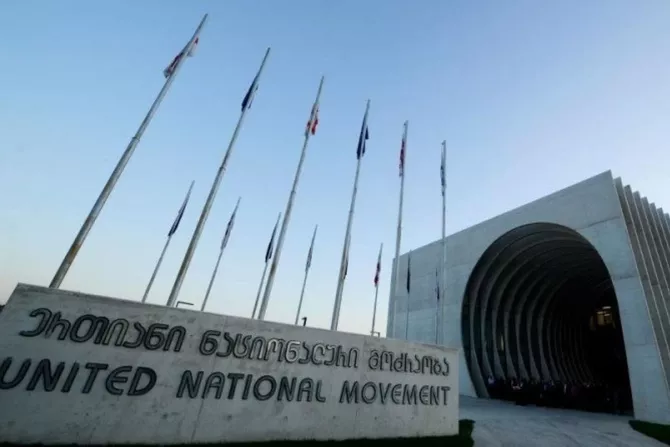
Source: Georgia.ge
Moreover, figures were brought in to lend the movement a veneer of legitimacy, including the world-renowned bass Paata Burchuladze and certain members of the clergy, whose actions, as it later turned out, were neither coordinated with the Patriarchate of Georgia nor officially sanctioned.
This combination of celebrity appeal and religious rhetoric was carefully calculated to produce emotional resonance and create an illusion of a “popular uprising,” even though the party’s real ratings have reached historic lows. What we witnessed was not a show of strength, but a desperate attempt by a politically bankrupt organization to reclaim media attention and provoke street unrest.
However, Georgian society has become much more mature. People now distinguish real reform from populism and constructive dialogue from street pressure. These actions, therefore, looked less like a political movement and more like the last, desperate gesture of a force trying to avoid accountability before the law, and before history.
- More specifically, what was really behind these actions, and who bears responsibility for them?
- As expected, from the very start of the rally in Tbilisi’s main square, UNM leaders attempted to radicalize the protest by resorting to violence. Particularly revealing was the behavior of Murtaz Zodelava, the former chief prosecutor under Saakashvili’s regime. From the first moments, he publicly called upon young opposition supporters - the so-called “men of strength” - to “advance and take the key to the presidential palace into their own hands.”
This statement was a direct incitement to storm state institutions and became the trigger for the escalation. Nearly two thousand people responded to his call, charging toward the presidential palace in a state of agitation and without coordination. The residence was already secured by special forces and law enforcement, but the crowd did not stop. The most dramatic and dangerous moments of the day unfolded right at the gates of the palace.
The attempted storming was accompanied by violence: attackers used improvised objects, stones, and metal rods, injuring more than twenty police officers. The protesters acted in a coordinated manner, which indicates that it was not a spontaneous outburst but a premeditated provocation aimed at creating chaos, destabilizing the situation, and delegitimizing the government amid the illusion of a “popular uprising.”
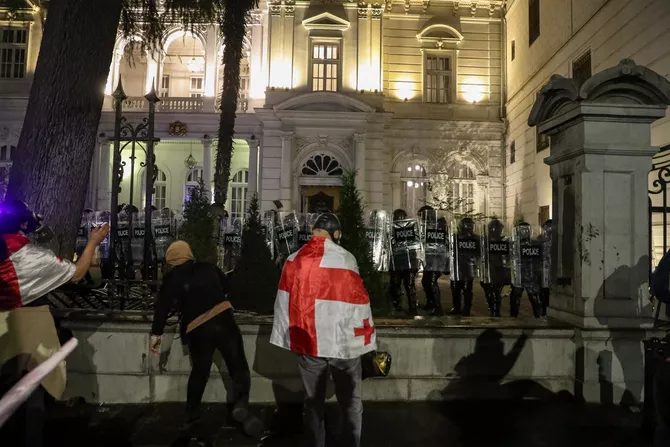
Photo: Novayagazeta.eu
But the plan failed. Law enforcement quickly regained control, surrounded the rioters, and detained the ringleaders. Among those arrested were both ordinary attackers and key organizers, including former prosecutor Murtaz Zodelava and populist figure Paata Burchuladze.
This failed attack became a litmus test: it showed that a part of the opposition still lives with the mentality of 2003, when power could be seized in the streets rather than through legitimate elections. But today’s Georgia is a different country. Society, having endured years of instability, no longer wants to return to chaos. The majority of citizens now understand that the path to progress lies through law, institutions, and responsibility - not through violence or political revenge.
- How would you assess the behavior of Western organizations and diplomatic representatives during this period, when there was a clear attempt to destabilize the government in Georgia?
- What is both interesting and troubling is the behavior of the EU delegation and several Western ambassadors, including the German ambassador, who, during the days of a near-revolutionary situation, openly expressed support for opposition leaders, effectively becoming their political patrons and accomplices in acts of political criminality.
These diplomats, fully aware of the danger and anti-state nature of the events, chose to remain silent, refraining from public comment - a stance that can only be interpreted as tacit approval of destructive processes.
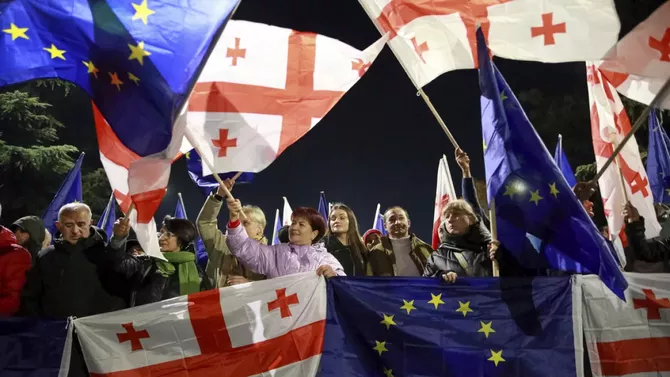
photo: Euronews.com
From all this, several key conclusions emerge. First and foremost, we should congratulate the healthy part of Georgian society that demonstrated civic maturity and prevented the country from sliding into chaos. The dismantling of the chief advocate of the international liberal establishment - embodied by the collective UNM - became an act of political self-purification.
What we are witnessing is not merely the crisis of one party, but the collapse of an entire political syndicate that for years parasitized on Georgian politics under the slogans of democracy and “European values.” Today we can confidently say that the neutralization of this dangerous, anti-national political entity has taken place. The next step should be its legal formalization - a ruling by the Constitutional Court of Georgia based on the Parliament’s resolution.
Such a decision would send a clear signal to the entire region: Georgia is ready to defend its sovereignty not in words, but in action - by eliminating externally guided entities that operated under the mask of “liberal progress.”
Share on social media